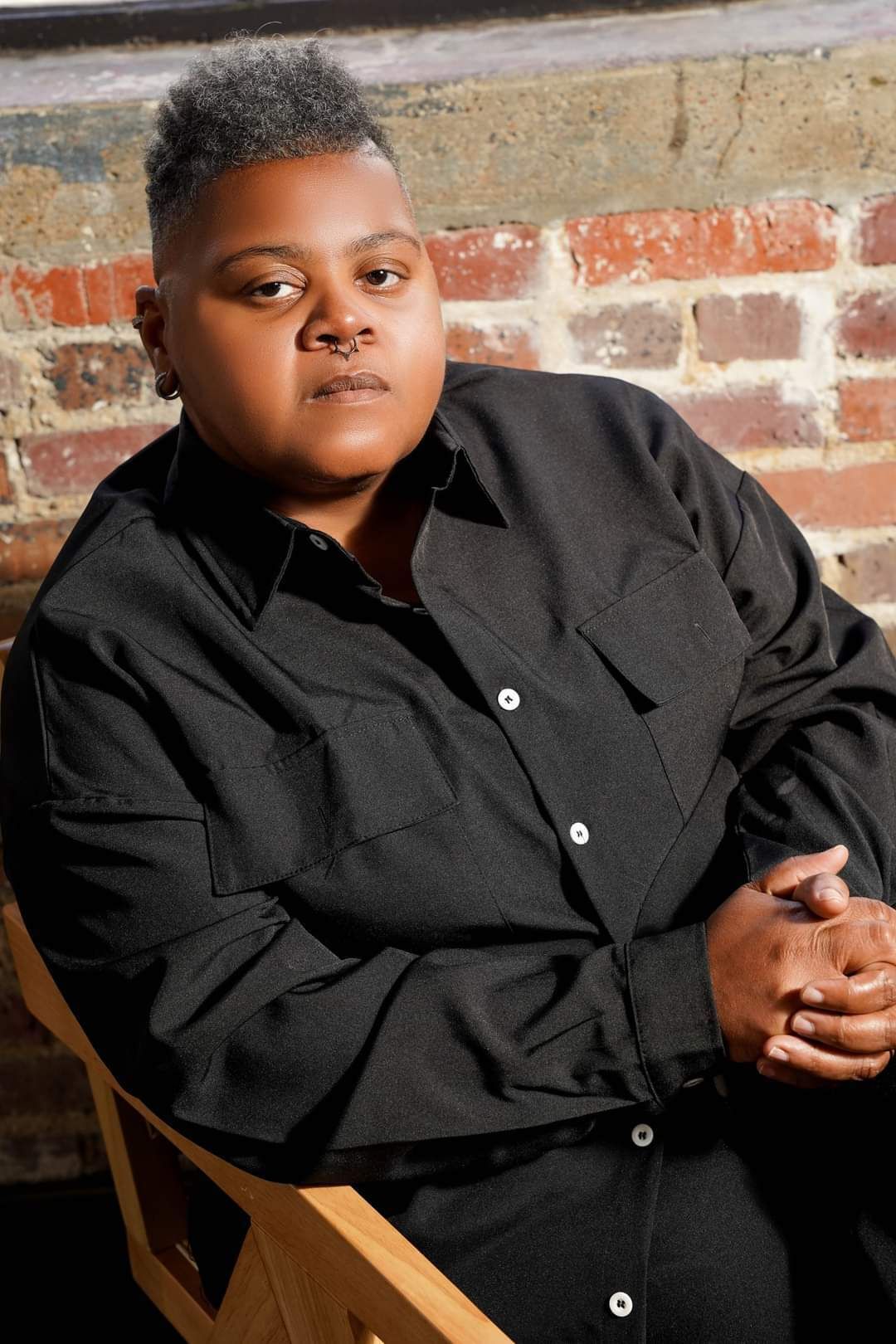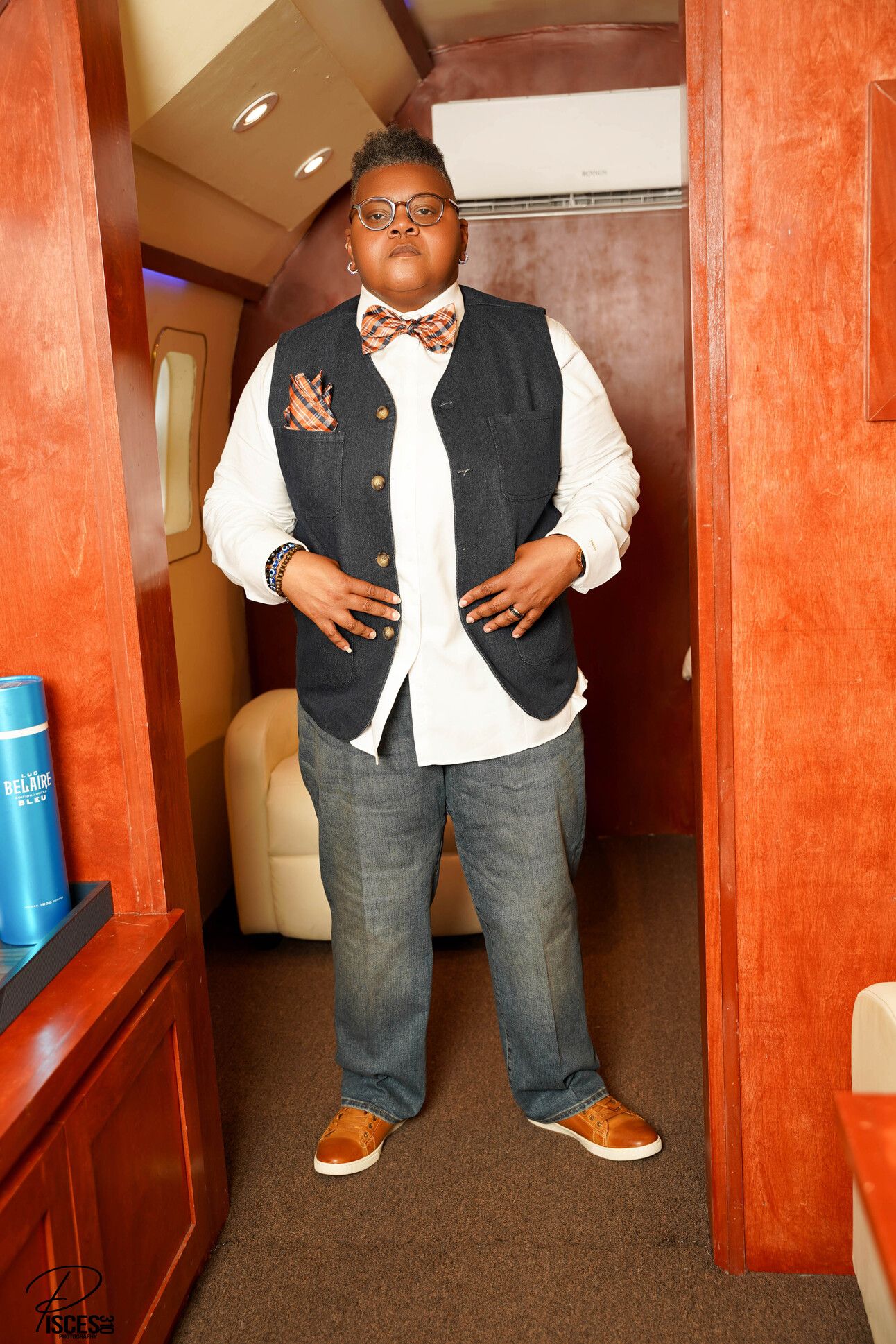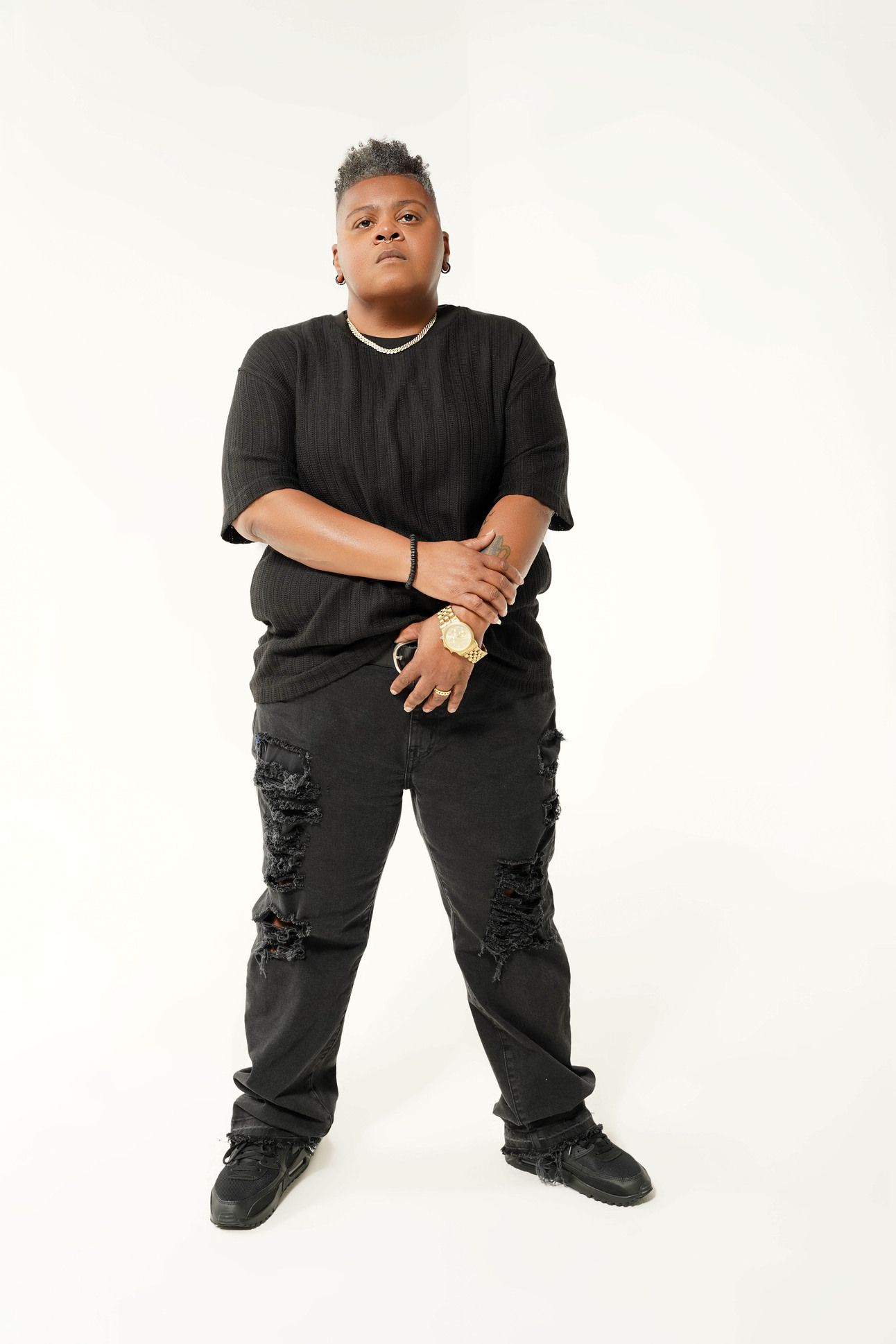MEET TODAY’S GUEST
Shelley Washington:
is a Black cisgender lesbian of faith, and the Service Director at the Normal Anomaly Initiative, a Houston-based grassroots organization centering Black Queer experiences, to end stigma and overcome barriers faced by the community.
For our Provider POV column, Shelley and I spoke about her work, her community, and her hopes for the future.

Hey there!
You’re reading Well Beings News — a queer trans health and wellness newsletter for practitioners, providers, and professionals who care about improving LGBTQ+ lives. This is Provider POV, a monthly Q&A interview with providers and professionals in health and wellness spaces, sharing their insights and knowledge about working with the LGBTQ+ community. We will be back to our regularly scheduled Monday/Wednesday/Friday programming next week!
___________________________________________
THE INTERVIEW
What does your current practice look like? Where and how do you work?
I'm Shelley Washington. I am the service director here at the Normal Anomaly. I am a queer Black woman. I like to include queer Black woman of faith, because I am also the assistant campus pastor for an open and affirming church here in Houston, Texas.
What drew you to this work, and how did you come to focus on LGBTQ+ communities?
I got into nonprofit work through my wife. We've been married for seven years now. It was through a program that the Normal Anomaly had—Project Liberate—through which I launched my own nonprofit, Be Owt Ministries.
Through this program, I learned a lot about the organization, what they do, who they serve. It got me closer to community, which I had not been in all my life, even though I've been queer all my life.
I wanted to bring community closer to what I call an inclusive faith—doing faith work in the community expansively, not just in a building, taking who I am, what I know, and giving that to the community.
I got involved because I wanted to be a representative, I wanted people to see that they had someone like them in a community they can come to, whether that be faith related, or for services, or for advocacy, for capacity-building.
What does "affirming care" mean to you? How do you define or embody affirming care in your day-to-day work?
Affirming care is care for all and care for everything, not just specific things. When we are specifically talking to our Black and Brown women, we want to make sure that we educate them on what they can receive and link them with resources, with professionals who can assist them.
We launched this program for Black and Brown women, we wanted to make sure that they were educated and equipped with knowledge about their sexual health and wellness. I am a testament—when I was growing up, there was no place I could talk about sexual health and wellness.
Now it's important to educate, we equip them, we give them what they need and let them know there are things we can do. We share knowledge about what's going on with our bodies, offer preventative care, and what safe self-care means for them.
With almost 40% of new HIV acquisition being among Black and Brown women, we want to make sure we’re educating them on what they can do to take care of themselves.
Affirming care is care for all,
and care for everything.
Are there particular personal or professional values, or therapeutic frameworks that guide how you work with LGBTQ+ communities?
When we were young, we were taught the Golden Rule—treat people like you want to be treated. That’s what I base everything on. The way I want to be cared for is how I care for others.
Not just me, but the people I work with in this organization—we show up for others the way we want to be shown up for. We want people to fight for our rights, we want people to stand with us, so we go out and we make sure that we are doing that same thing for others.
What are some common barriers or challenges your clients face in accessing safe and supportive care?
Transportation. Just getting there. And education. There is a Scripture that says, “people perish from lack of knowledge.” Educating people, getting people to buy in is the biggest piece. We have to pump and prime people to come get educated about what they need and how we can serve them.
We offer things that people want to get them to come and hear about PrEP, for example, to learn that it’s not just preventative care for gay men. That's the biggest barrier—encouraging them, equipping them.
People perish from lack of knowledge
How do you build trust and safety with clients who may have previously had negative experiences in health or wellness settings?
Representation. Being transparent and vulnerable—letting them know, 'Hey, look at me. I’m the same as you and I go through the same things. I need to know about sexual health and wellness, I need to know about transition health care.' I give them a real life story.
It's about storytelling. This thing is real, this person is real, this organization is proof of realistic views, realistic values, morals, community. Being a representation is how we get the message out there, “I did this because I was without health insurance. I too was without transportation.” The buy-in comes from being yourself—being authentic, being vulnerable, being transparent, and always, always listening.
From your perspective, what are the biggest gaps or needs in care for LGBTQ+ people right now?
Transportation and education, yes. But also knowing who and where to go to—which providers. We don’t trust easily. We need more healthcare facilities and spaces that will step up for the LGBTQIA+ community. We need people who are going to tell their stories, who are going to, if not part of the community, be allies for us. We need people who are going to fight with us and stand with us when we are searching for the right providers or the right space, where we can be welcome and not have to dumb down who we are or stand in the shadow of who we are. We need providers to step up, we need health spaces to step up. We need that help.
NEED TO KNOW
What do you wish more providers understood about working with LGBTQ+ communities?
That we are people too. We bleed red. We want to be helped, but we need the resources. We deserve better healthcare, better help, better providers—ones who listen to us, and don’t push us away because of our gender, sexuality, or what we look like.
_____________________________________________________________________


Have you faced any pushback (from colleagues, systems, family)? If so, how have you navigated that?
Personally, no. But I know the organization has. There have been stumbling blocks, because of the work that we do, and because of who we are. Being a Black LGBTQIA+ organization—those intersections create barriers for us. We’ve dealt with administrative hurdles, federal funding cuts. But we push past those boundaries. We stand tall. We’ve come a long way. I’ve seen great things since I’ve been here, and it’s only going to get better. Again and again, we go out on the front lines, and we be who we need to be for the people that we serve.
What advice would you offer to someone wanting to start offering more affirming care? Are there policies, resources, or trainings that helped you?
I would just literally tell them to do it. Stand tall and do it. Be your most authentic selves, whatever that is, including if you’re an ally. Love has no color, no gender, no sexuality—love is love. I don’t mean that as a cliche. I truly mean it, love is love, and in order to do the work, we have to love all kinds. Stand in your truth, stand tall, and if you need help, reach out! Contact us and we’ll get you to the right spaces, make sure you have the resources you need.
I’d love to know, what keeps you grounded or hopeful in your work?
Knowing who I was at the time that I was, and being able to stand tall—If I could do it, anybody can. What keeps me grounded is continuing to be that which I know I have to be, the representation that I needed. I’m going to continue to stand tall. I’m going to continue to ride this wave. I keep going because I want to be for someone else what I wanted at the time to keep doing the work.
I keep going because I want to be for someone the representation that I needed
Is there anything I didn’t ask that you’d like to share?
Actually, no. You asked plenty, and I appreciate it. I appreciate the space, your time, your authentic questions. Thank you for hearing my story and than you for sharing it.
GET INVOLVED
Want to See More?
▶ To Watch: Follow the St. Peter United YouTube channel to see Shelley minister about love to an affirming LGBTQ+ congregation.
▶ To Attend: Houston-area Black and Brown queer folks should follow Normal Anomaly on Eventbrite for upcoming events!
ON BUSINESS
Where to Find More of Shelley’s Work
You can see more of Shelley Washington on the Normal Anomaly Initiative’s Instagram where she posts Reels like this beautiful message of love. Check their LinkInBio page regularly for updates or follow on Facebook.
Help us keep sharing real stories
▶ Know someone who’d love this? Forward it on!
▶ Buy us a coffee so we can keep doing this work.
▶ Got something to share? Let’s hear it!
▶ Was this email forwarded to you?
